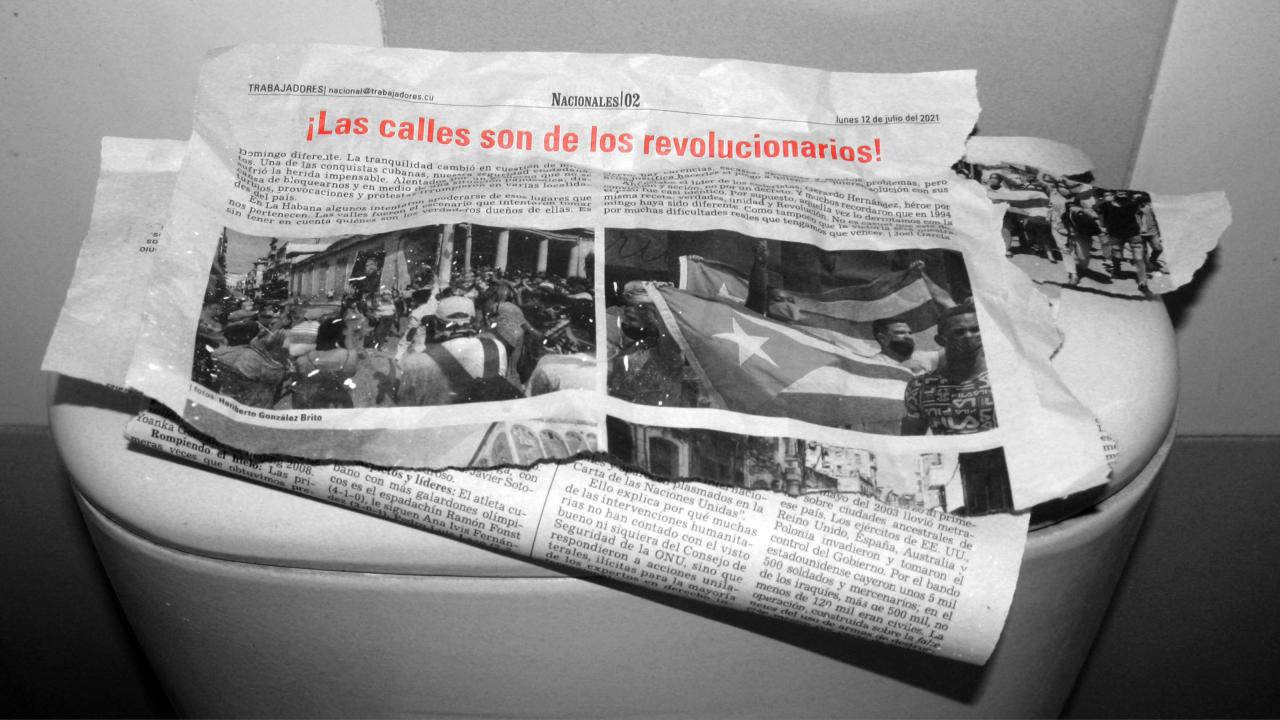Civil society organizations are raising alarms about the restrictions on access to public information contained in the regulation that the National Assembly is to approve in December to guarantee this constitutional right of Cubans. But, before publishing the Transparency and Access to Information bill, the regime had already made sure that it was the Ministry of the Interior (MININT) that would decide what citizens can know.
On October 26, two weeks before publishing the proposal of said law, and giving Cubans just one week to review it and send their opinions, decree-laws on Security and the Protection of Classified and Limited Information, and on The Development, Application and Use of Cryptographic Protection Devices and Services in the Sphere of Cryptography in the Republic of Cuba, were approved.
Attorney Edel González Jiménez, a member of DIARIO DE CUBA, draws attention to the fact that both decree laws were approved right on the scheduled date, according to the legislative schedule set in June. Other legislation included on the schedule since 2019, however, has not yet been approved.
"The country's political leadership conceives of the issue as a priority, but not the development and honoring of denied and postponed individual freedoms and rights," says the lawyer.
An example of the above is the rule regulating the constitutional rights to peaceful assembly and demonstrate and to housing.
Through the two aforementioned decree laws, mainly the first, the regime specifies that it will determine what information is classified, in which case Cubans will not be able to exercise their right, cited in the Transparency and Access to Information Law, to seek redress through the courts when they are denied access to it.
One month has elapsed since the approval of both decrees, and neither has been published in the Official Gazette of the Republic.
A source close to the structures of the Cuban State informed DIARIO DE CUBA, on condition of anonymity, that the Decree Law on Security and the Protection of Classified and Limited Information identifies the Ministry of the Interior (MININT) as the body with the exclusive authority to inspect, control and indicate to any civil institution, or natural or foreign person legally domiciled in Cuba, public or private, what information is classified as secret, confidential or limited. It is also charged with sanctioning those responsible for legal breaches approved in this area.
"The rule is a way to enhance and update the old mechanisms, which severely affect the scope of the right to information that Article 53 of the Constitution claims to recognize," says González Jiménez.
According to the information received from Cuba, the MININT continues to have the powers to issue rules and procedures on Security and the Protection of Official Information; to carry out inspections, audits and controls involving Security and the Protection of Official Information, including Cryptography and Computer Security. It is also empowered to promote the training of qualified personnel and to develop science and technology in the field of Security and the Protection of Official Information, Computer Security and Cryptography.
"These 'superauthorities' are what actually prevent Cubans from ever accessing the essential content, despite their right to information access, dissemination, criticism and opinion, given that almost everything is classified as secret or of limited social access. The Government and its agencies are tied, hand and foot, to the interests of the MININT, " explains González Jiménez.
"At all state institutions there are statistical departments or data centers. These departments are 'visited' and systematically monitored by the Ministry of the Interior, by specialists who are trained to evaluate what type of information from each institution should be classified," says the lawyer.
"Divorce data, for example. The court system identifies it as public information, which can be accessed. A MININT official arrives, however, and says no, that, as a result of the possible manipulation of that statistical data by the empire, etc., etc., he orders or 'advises,' during an inspection visit, that the information must be classified."
"Automatically, he reports the incident; the president of the Supreme Court meets with the MININT's Directorate of Classified Information, and they make the decision. If they so decide, the information that had been public is then classified. The opposite can also happen: information that was kept secret becomes public if these people decide that it being in the public domain is no longer a danger."
"The MININT controls and has a monopoly over determining the data and information to be classified in Cuba. In fact, if there is information that is classified, and it is not encrypted, there are fines for the officials who are in charge of these departments."
"If the president of a court is obliged to generate information about crimes involving threats, and that information is secret —and I know it is because criminal policy reports in Cuba are secret— and he kept it as public information, and it was not encrypted, and did not appear in the database that the Ministry of the Interior designed for that, then that person is liable from a labor and administrative point of view. That attitude is considered a breach, and he may be subject to personal fines."
The lawyer points out that, although all countries have regulations governing the classification of information, "this process is minimal or exceptional, since they fully comply with the principle of maximum publicity. In Cuba, although the Transparency and Access to Information bill recognizes this principle, such recognition is purely theoretical."
"In practice, the opposite principle prevails: that of minimum publicity. In the democratic world courts are authorized to assess the real scope of this principle, and have the power to say that information classified as secret should not be because it violates the human right to access to information, and to order that it be made public. In Cuba, as a result of these decree laws that we have analyzed, the courts are not authorized to make that decision."
